The world this week: Overcoming security challenges
(Baonghean) - The Syrian government is determined to hunt down rebel forces in the area near the border with Turkey, while Ankara threatens to attack "anywhere" in Syria; tensions lead to a high risk of military confrontation. The 56th Munich Security Conference in Germany was held to seek solutions to "hot" issues in the world and global challenges. These are notable international issues of the past week.
Conflict awaits
In Syria, where the conflict has been simmering for nearly nine years, it seemed like the warring forces could slow or even weaken the tensions. But over the past week, the conflicts have flared up again, escalating tensions between Türkiye and Syria – which ceased fighting in 2018 after Türkiye and Russia agreed to create a demilitarized zone for opposition groups to withdraw. Ankara and Damascus forces have been directly attacking each other, with tensions rising by the day.
This is considered an “aftershock” when the Turkish army has been continuously attacked by Syrian government forces in the past 10 days, killing 13 soldiers. Turkish President Recep Tayyip Erdogan on February 13 announced that he would attack Syrian air and ground forces “anywhere” in Syria if there were any more Turkish soldiers killed.
Hopes are pinned on Russia – a strong and long-term supporter of the Assad regime, but also a “new friend” of Türkiye – a member of the North Atlantic Treaty Organization (NATO). All hopes are pinned on discussions between Moscow and Ankara to salvage the situation.
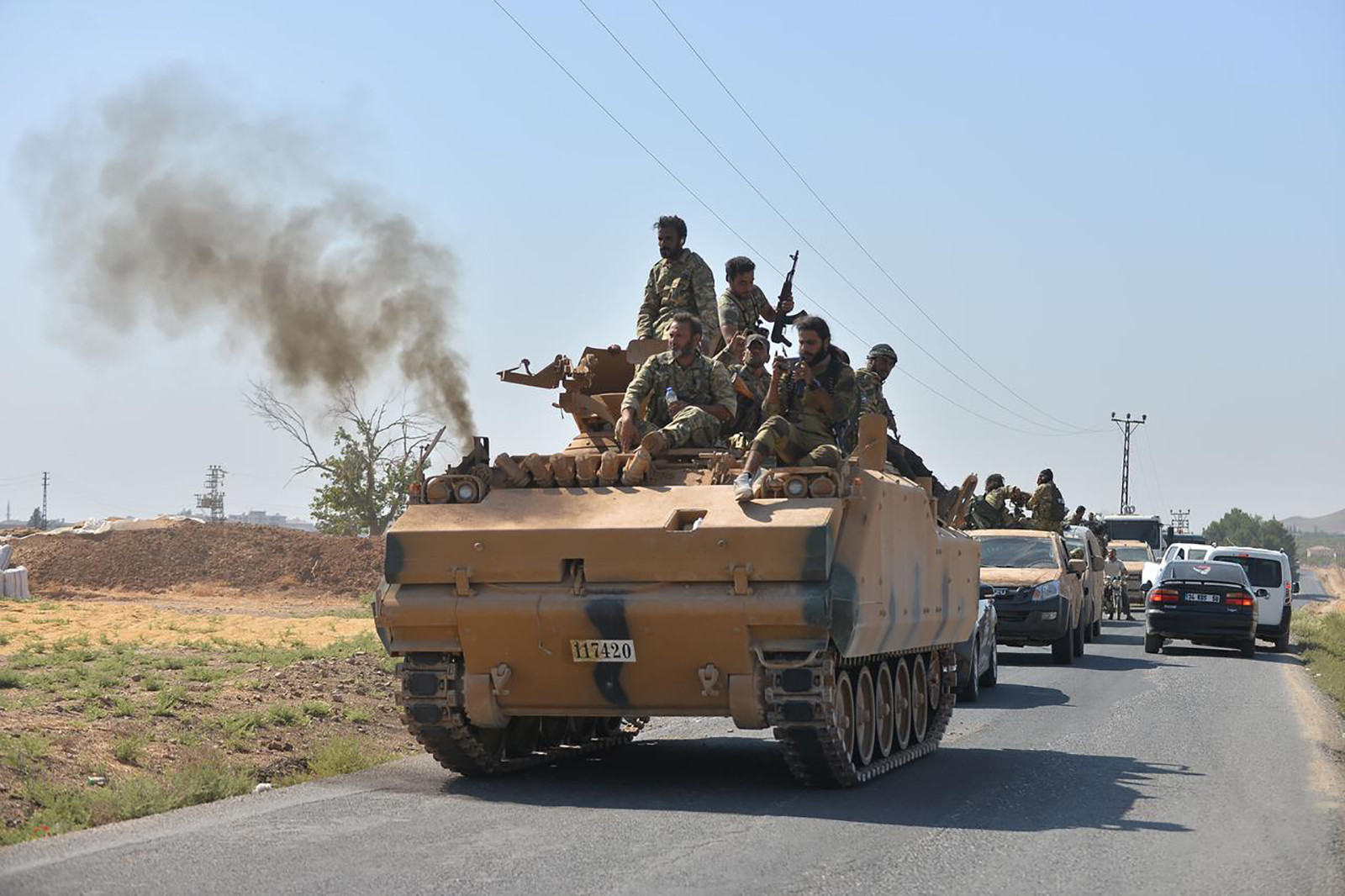 |
| Syrian government troops move to Idlib province. Photo: Reuters |
The Kremlin said Russian President Vladimir Putin and President Erdogan had just spoken by phone and agreed to continue contact on Syria. However, no concrete measures were taken. Meanwhile, Russia accused Türkiye of violating an agreement to neutralize rebel forces in Idlib. Russia and Syria said the operation there was aimed at rebel fighters, while Turkey accused it of targeting civilians. In response to those statements, President Recep Erdogan warned of the possibility of Russian and Turkish warplanes clashing in Idlib.
Idlib appears to be the most serious “wound” of the protracted civil war in Syria. There are 4 million people trapped in the fighting area. The tense situation in recent days has caused thousands of people to rush north near the Turkish border to evacuate. The Russian Defense Ministry recently rejected accusations of attacks on civilians in Idlib, affirming that “the activities of the Russian military and, above all, the Center for Reconciliation of the Warring Parties in the Idlib de-escalation zone are carried out only on the basis of the Sochi agreements”. The Ministry said that allegations of a massive flow of refugees from the Idlib de-escalation zone have no basis in reality, as a significant part of the population of Idlib province has left the danger zone and entered areas controlled by the Syrian government.
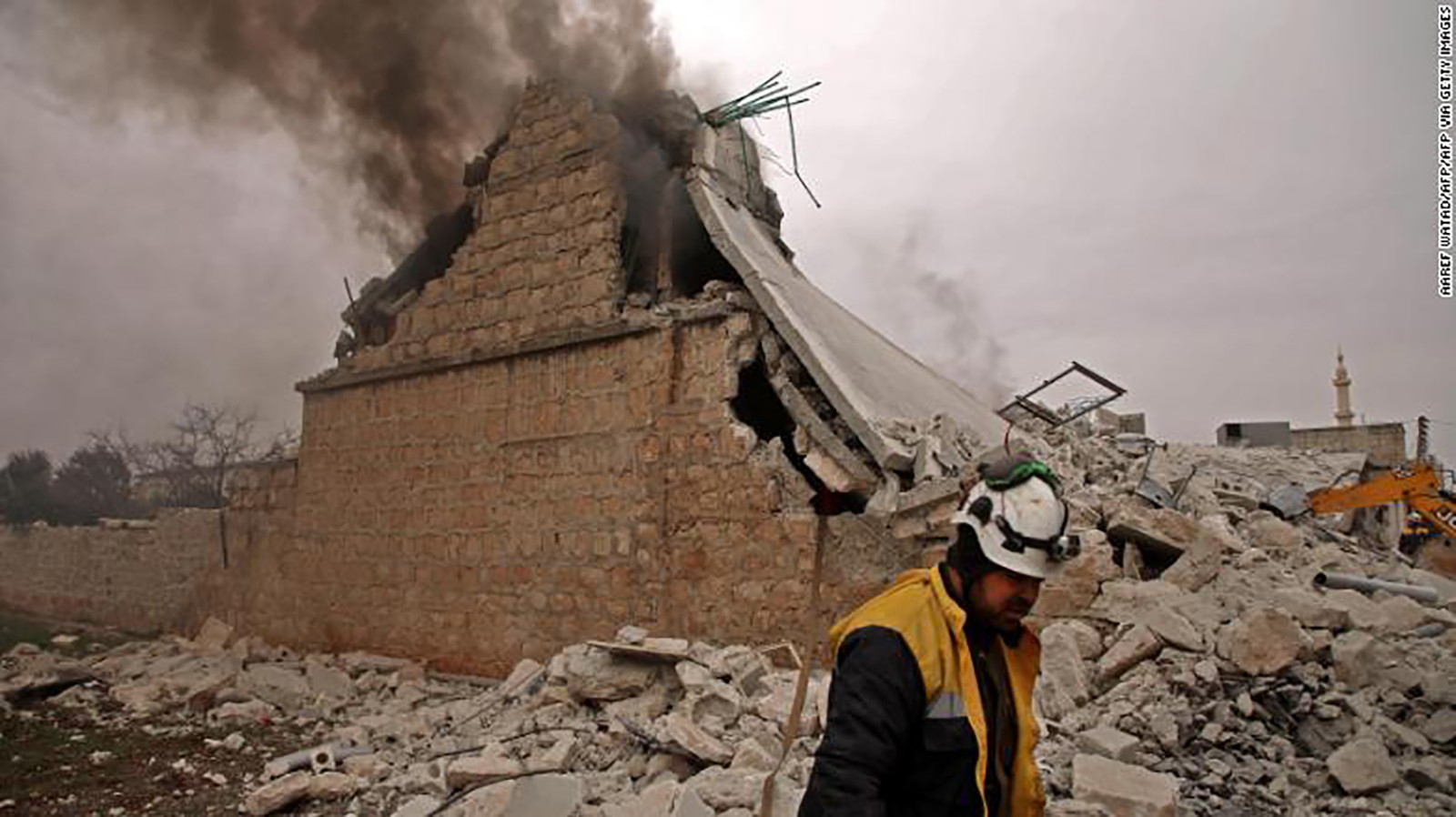 |
| Fighting in Iblib province (Syria) left civilians trapped in the rubble. Photo: CNN |
“The direct clashes between Türkiye and Syria are not the proxy wars we are used to, but a whole new level of interstate conflict,” said Charles Lister, a senior fellow at the Middle East Institute. “The Erdogan administration’s immediate considerations are focused on the risk of escalation, while Turkey faces an unprecedented humanitarian crisis that is only going to get worse.” Turkey will have to absorb a massive influx of refugees.
The main mission of Russia and Türkiye in Syria is to destroy international terrorist groups that are entrenched in this territory to restore peaceful life to the Syrian people. However, the conflict between Turkey and Syria has led to tensions between Turkey and Russia.
“A series of agreements between Russia and Türkiye has prolonged the escalation over the past 500 days. But eventually, Türkiye needs to do something. But it is unlikely to have Russian support. Moscow does not want to bring back more of its forces or Syrian regime troops. This means Turkey risks Russia if it attacks Syrian forces directly. Ankara’s options in this context are both less successful and lead to the abyss.”
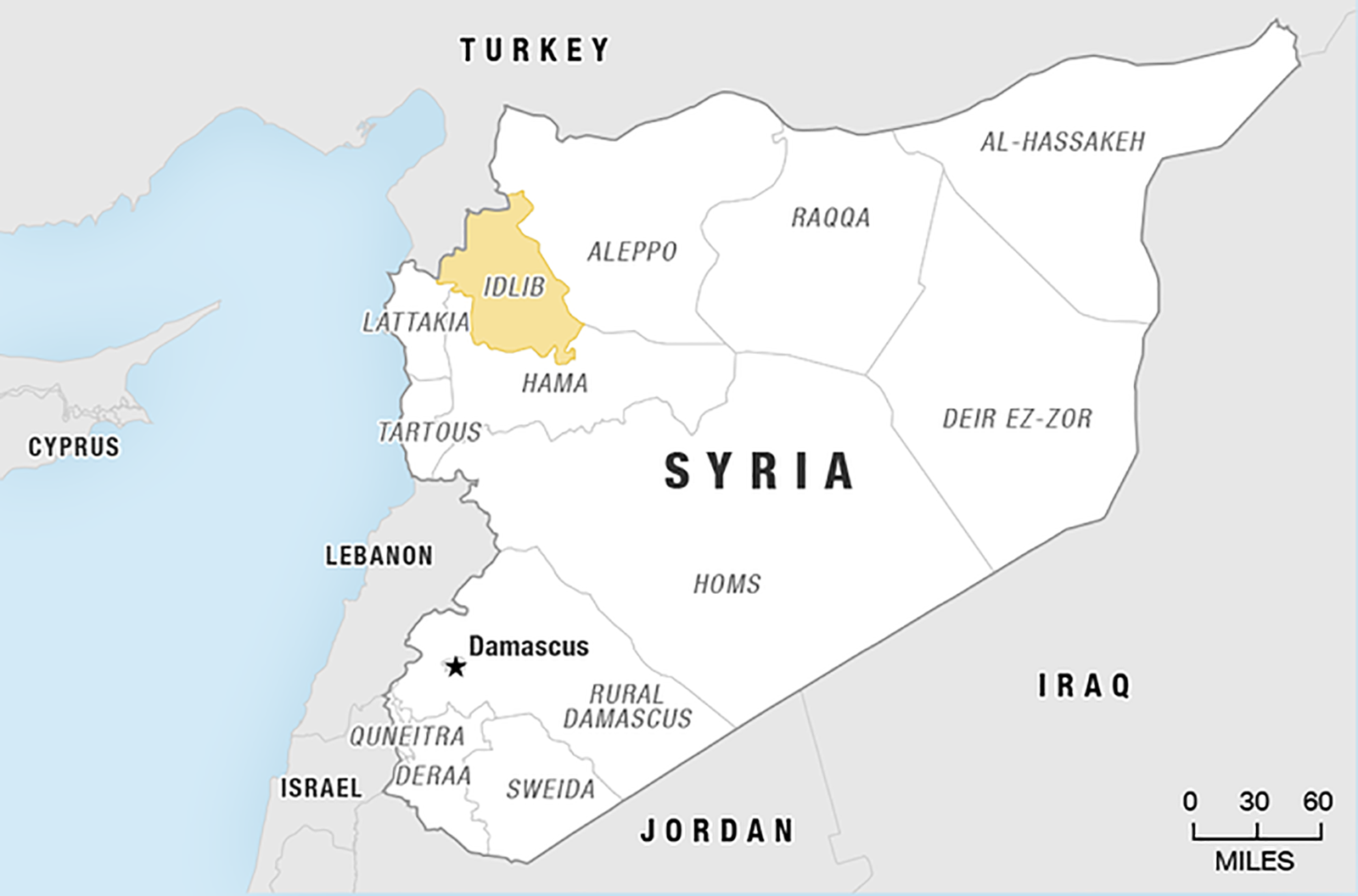 |
| Location of Idlib province. |
Analysts say the reason for Türkiye’s potential failure is that Ankara has long isolated itself from its Western allies. Meanwhile, the signing of cooperation agreements with Russia always ends with Moscow demanding Türkiye “surrender”. And in Syria, there is currently no answer because Ankara is facing a serious crisis.
This conflict almost "unleashed" all the potential for violence and military clashes over the past 9 years, signaling a new, troubled chapter ahead.
Dealing with many hot issues
As one of the best events to assess the direction of foreign policy thinking, security, and world peace, the 2020 Munich Security Conference in Germany attracted many high-level strategic planners. More than 35 heads of state, and more than 100 ministers from around the world and representatives of many international organizations attended from February 14 to 16. The conference took place in the context of many concerns about world security continuing to be uncertain, and Western countries are uncertain about their values and strategic direction.
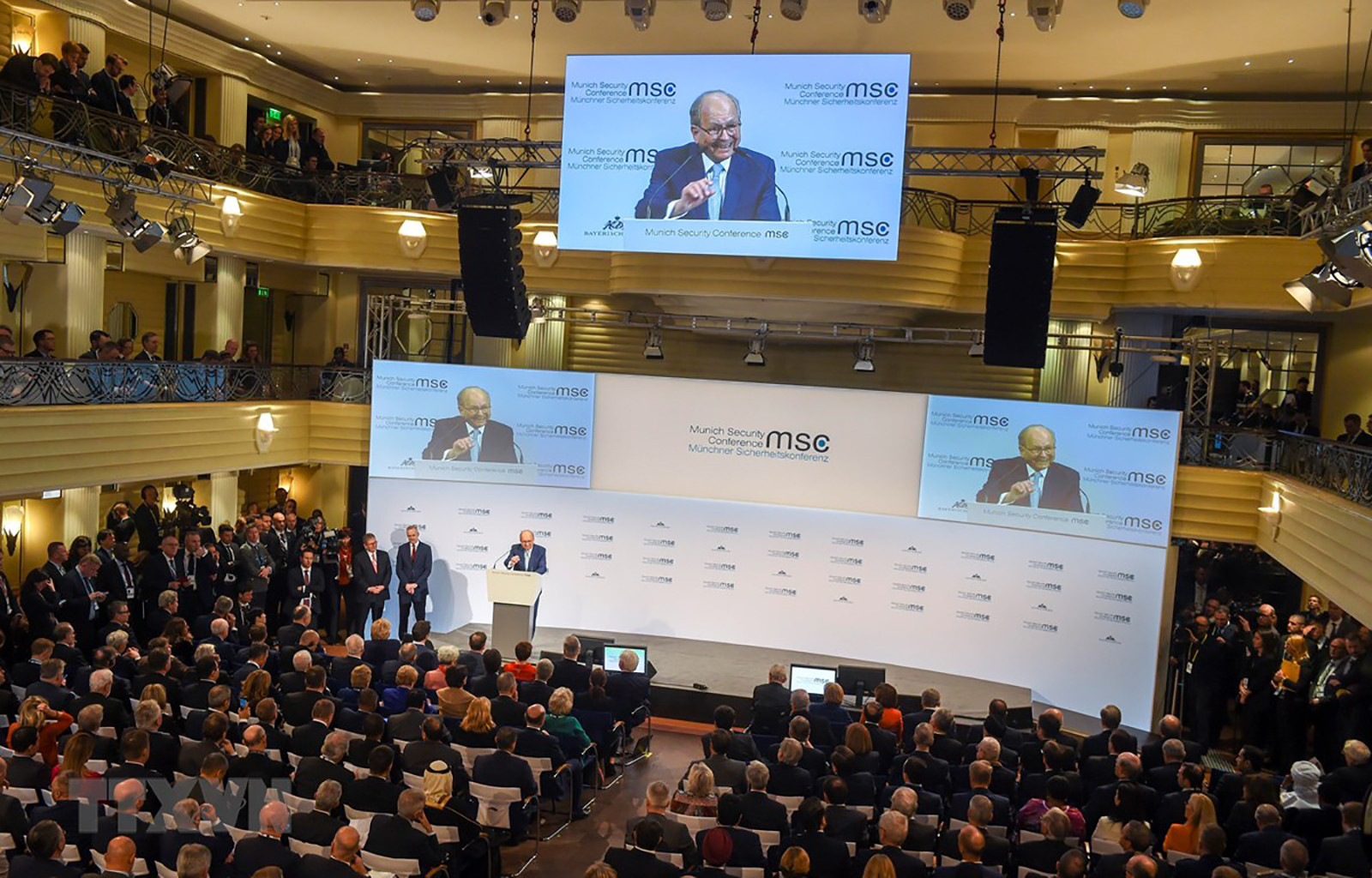 |
| Panorama of the opening session of the 56th Munich Security Conference in Munich, Germany, February 14, 2020. Photo: AFP/TTXVN |
The 56th Munich Security Conference (MSC) was held to seek solutions to "hot" issues such as military conflicts in Libya and Yemen, recent escalating tensions between Türkiye and Iran, US-China trade competition, Russia's "Nord Stream 2" project... In addition, urgent global challenges such as climate change, and most recently the outbreak of the Covid-19 pandemic... were also main topics, especially the impacts of climate change on security policy and the similarities between trade, technological development and international security.
This year, German Chancellor Angela Merkel did not attend MSC. Instead, German Foreign Minister Heiko Maas represented the host country, Germany, to show Berlin's role and call on the world to support the peace process in Libya. German President Steinmeier, in his opening speech, emphasized that the world is moving further and further away from the goal of creating a more peaceful world through international cooperation each year. Mr. Steinmeier simultaneously criticized the three major world powers, the United States, Russia and China, in their responses to a number of issues. This is making the world more unstable, distrustful of each other and more armed.
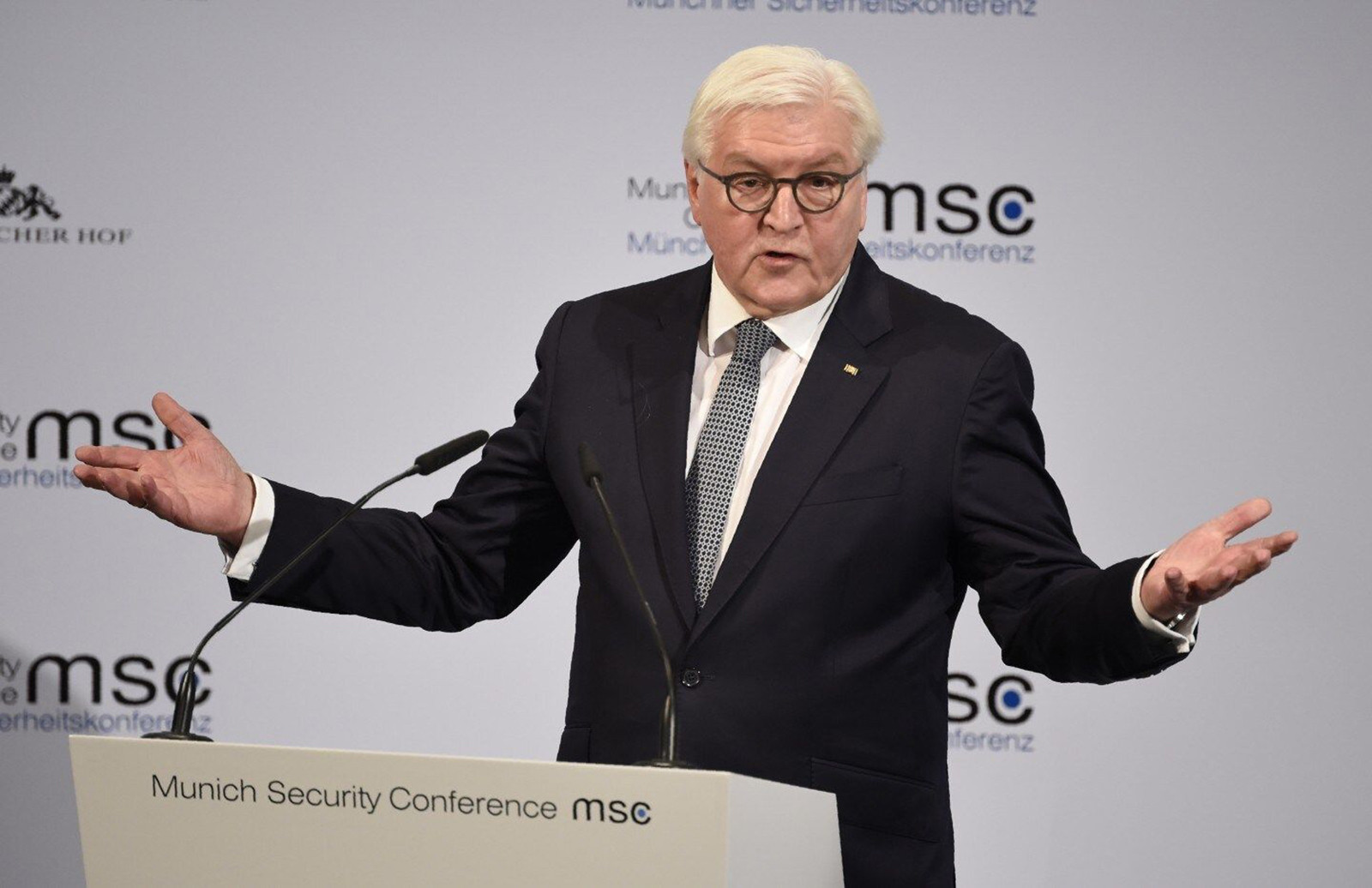 |
| German President Frank-Walter Steinmeier has accused the US, China and Russia of causing global insecurity and distrust with “great power” competition that could lead to a new nuclear arms race. Photo: AP |
The conference devoted time to discussing the deepening divisions within the transatlantic alliance, with the role and position of the West becoming a hotly contested topic. In addition, common security in Europe is also a matter of concern, as the old continent is being fractured after Brexit and in the context of the rise of populism, liberal internationalism is putting the West in danger.
Although the conference is not a place to make policies and cannot resolve current security issues, it is an extremely important forum for parties to dialogue, strengthen mutual trust, reduce confrontational tensions, as well as deal with challenges and protect the international security environment.

